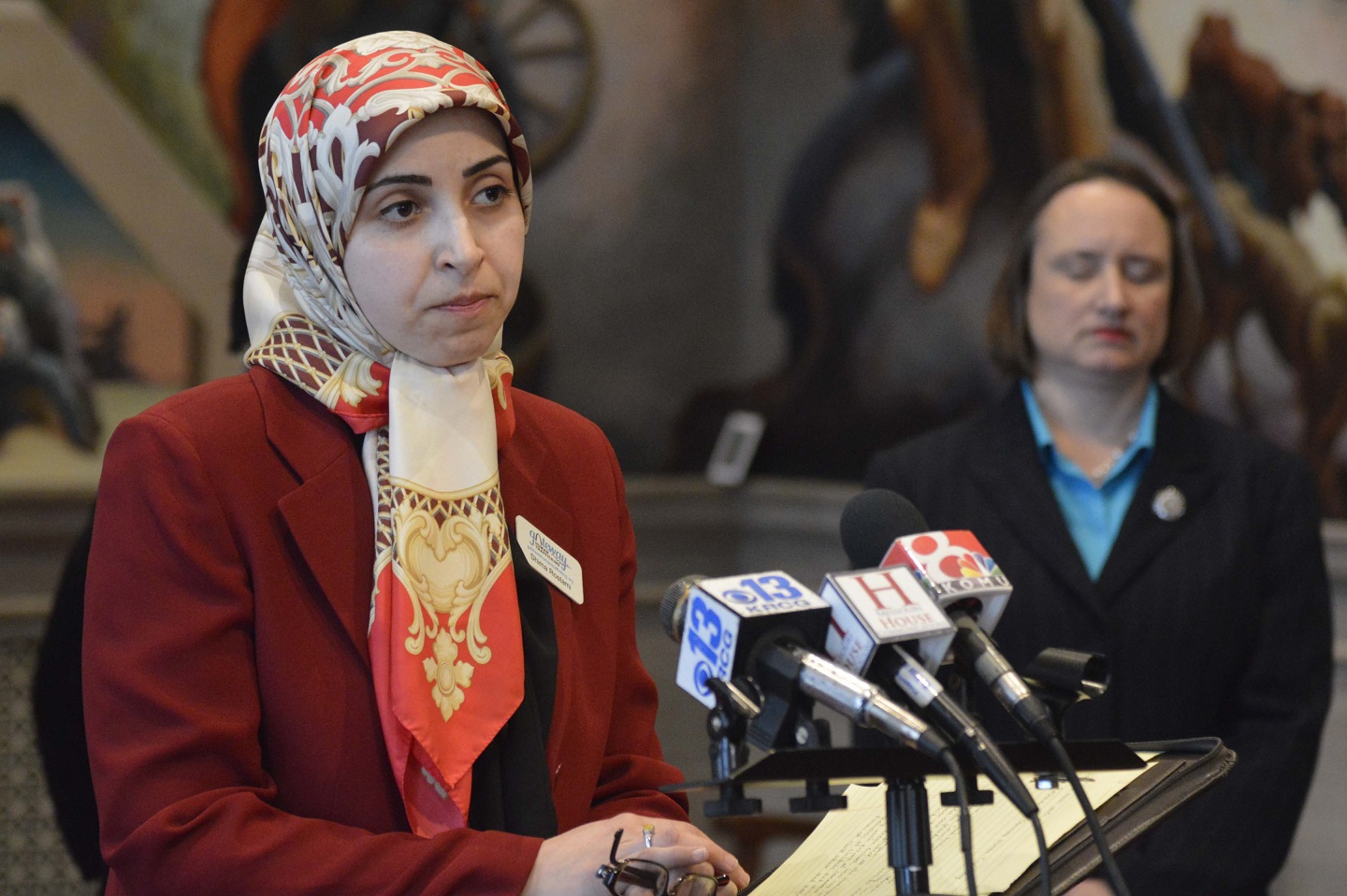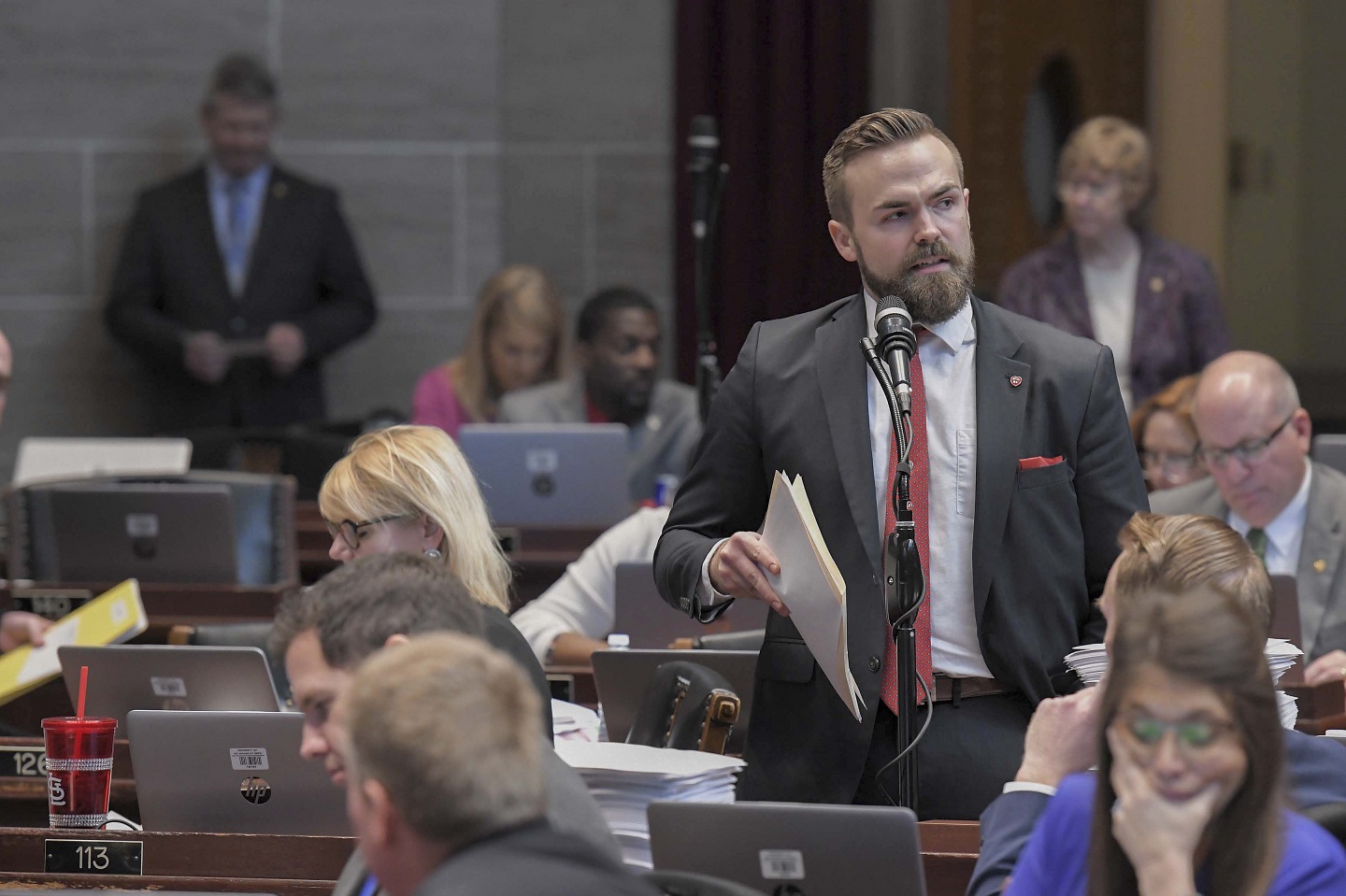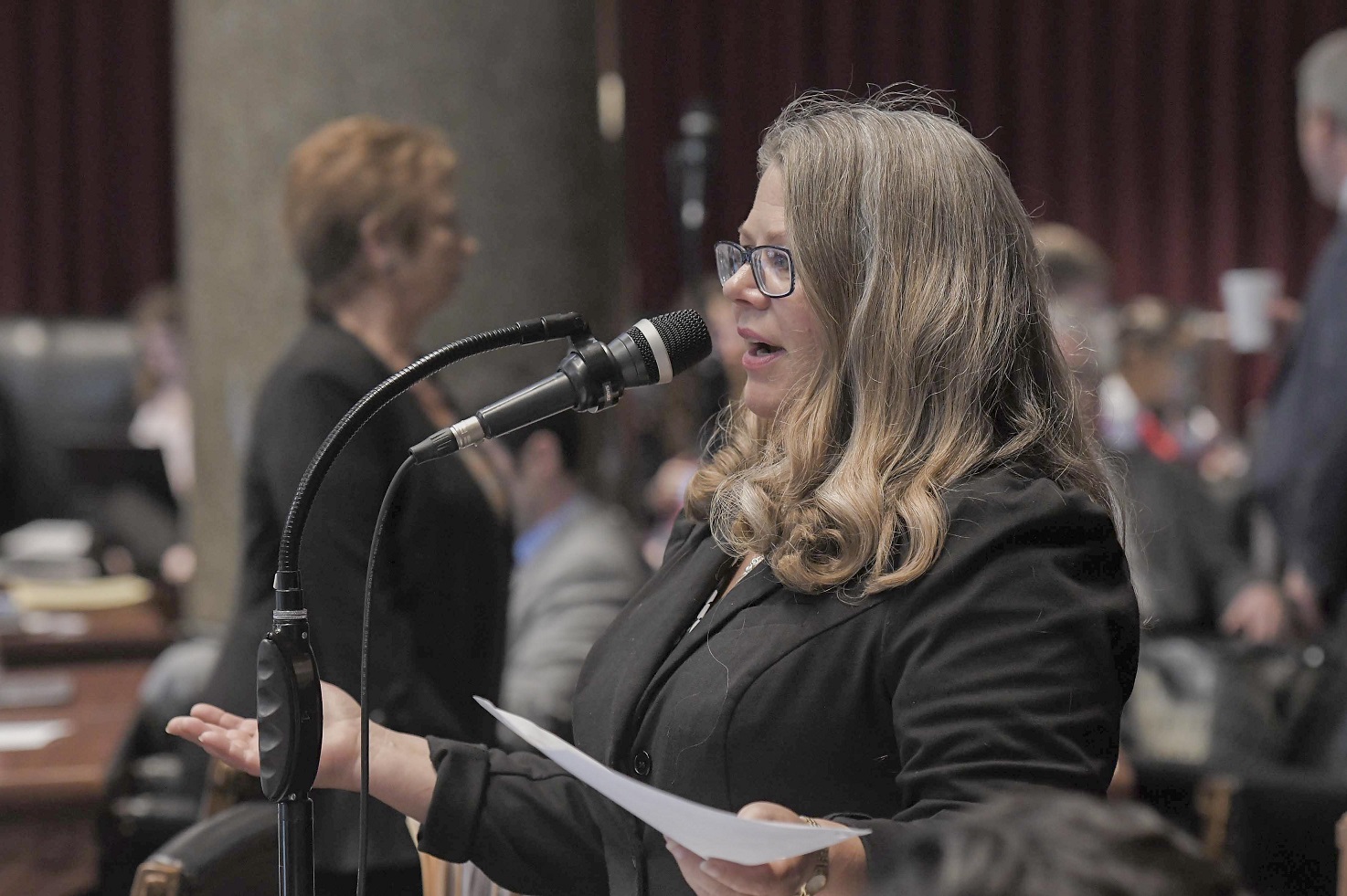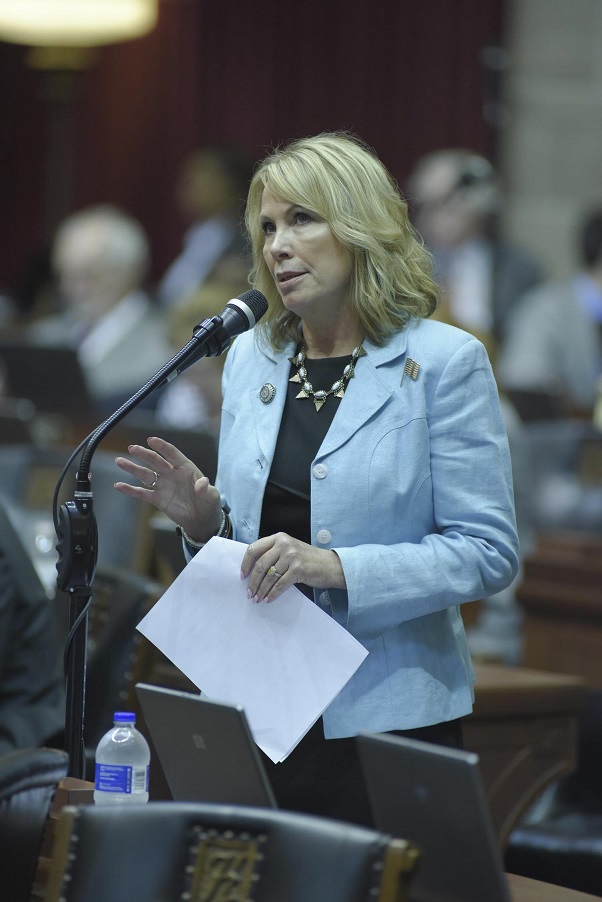The state House has approved a comprehensive plan for combatting human trafficking in Missouri. The bill brings together the efforts of several lawmakers, and its sponsor says it is just his opening volley.
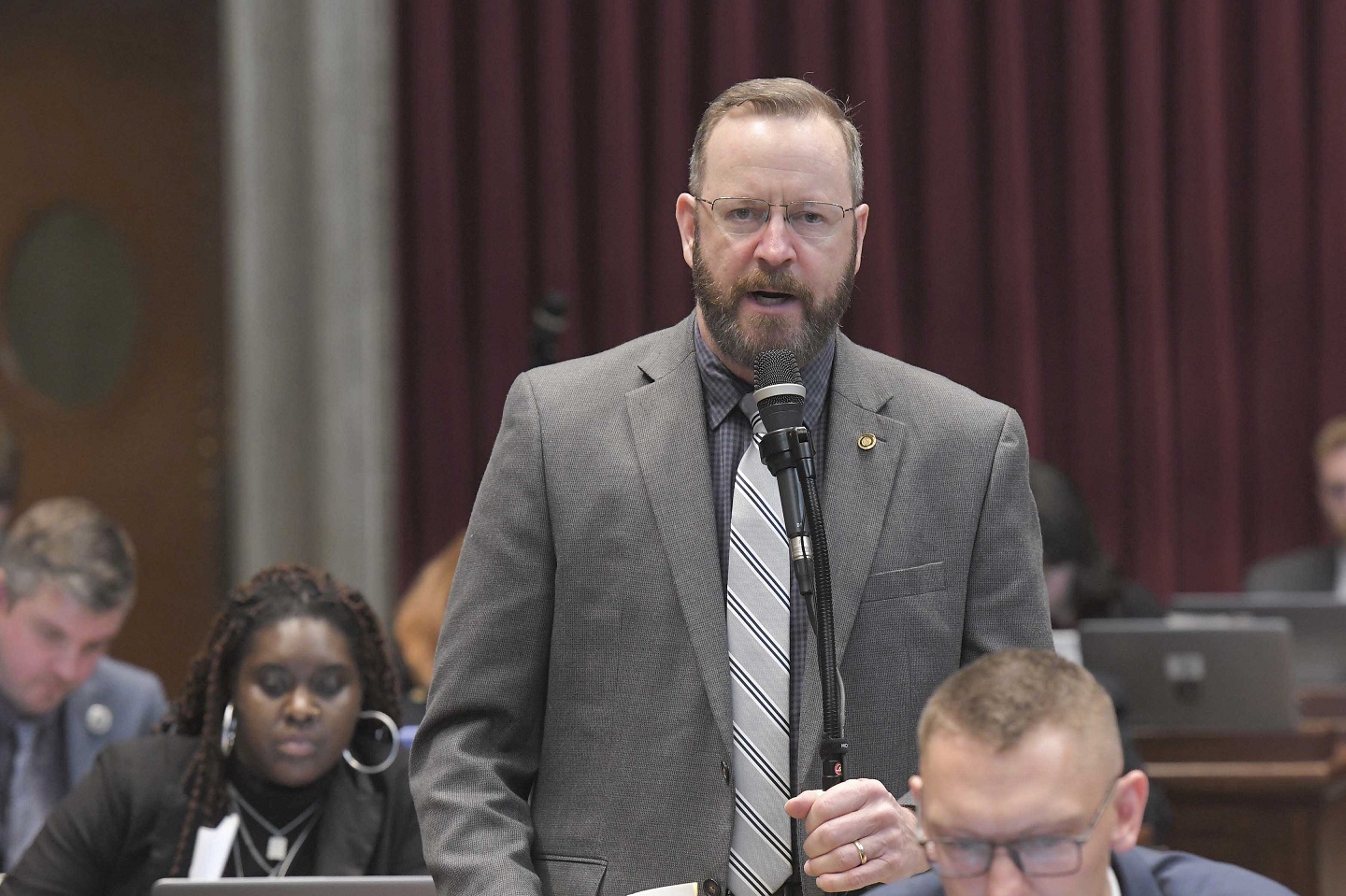
Representative Jeff Myers (R-Warrenton) told colleagues that the state has got to think of human trafficking in terms broader than those by how it is defined. He said it goes beyond, “using fraud, force, or coercion to exploit a person for labor, services, or commercial sex.”
Myers, a retired Highway Patrolman, said he launched the effort that became House Bills 1706 & 1539 at the end of the 2023 legislative session.
His legislation would require regular training in sex trafficking for EMTs, paramedics, nurses, prosecuting attorneys, juvenile officers, social workers, and law enforcement officers. The bill would establish, “a steering and vetting committee to make sure that this training is tailored and effective, and adapts over time.”
Myers said the training this bill would require is vitally important, as it reflects a recent and important shift in attitudes throughout the country about how first responders should interact with sex workers.
First responders and medical personnel are often the first people trafficking victims have a chance to talk to after becoming victims, who aren’t exploiting them and who might offer them a chance for escape, but by the time of that interaction victims are often already too traumatized or brainwashed to ask for help. Myers said this training, in part, focuses on recognizing a victim and how to offer help without further endangering them.
The provision in this legislation that is the most personal for Representative Jeff Coleman (R-Grain Valley) is one he has sponsored for the past two years.
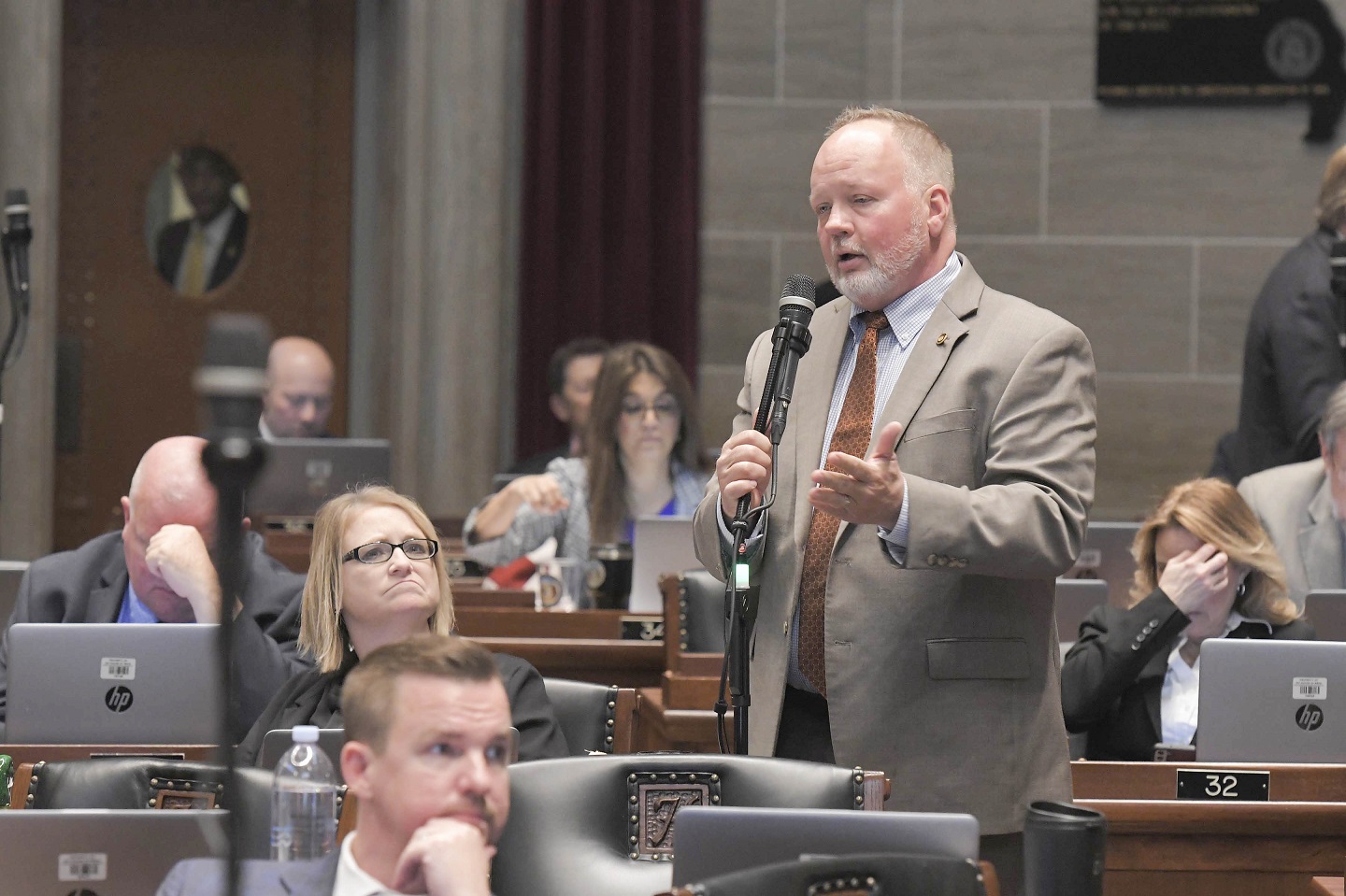
It would allow courts to enter into evidence recordings of statements made by a victim of trafficking or sex crimes up to the age of 18, an increase from the age of 14 in current law. Allowing these recorded statements spares victims from another occasion having to relive their experience, this one in a courtroom in front of their abuser.
In the year since Coleman first offered that bill, it took on new meaning for him.
The intent of Coleman’s bill was always to spare victims, who already have to revisit the trauma of what they’ve been through multiple times as a case goes through the courts. Now he has a much deeper understanding of what they face.
“The first thing my 15-year-old daughter had to do was go to the hospital and get a rape test. She was there for eight hours getting probed and … all kinds of things that I won’t even tell you, eight hours. The next thing, she had to do a forensic interview, and that took another three hours … so she’s reliving it every time that she has to go do something,” Coleman said. “Then she had to talk to the prosecutor’s office and that was another hour-and-a-half interview, that she had to explain all over again, what happened.”
Coleman implored his colleagues, who approved this provision last year 149-2, to vote for it again this year on behalf of people like his daughter.
The bill would also build on an effort that began in 2022, with legislation carried by Moberly representative Ed Lewis (R). It created The Statewide Council on Sex Trafficking and Sexual Exploitation of Children.
Its goals included making sure that the state understands how big of a problem trafficking in Missouri is, and looking for ways to combat it.
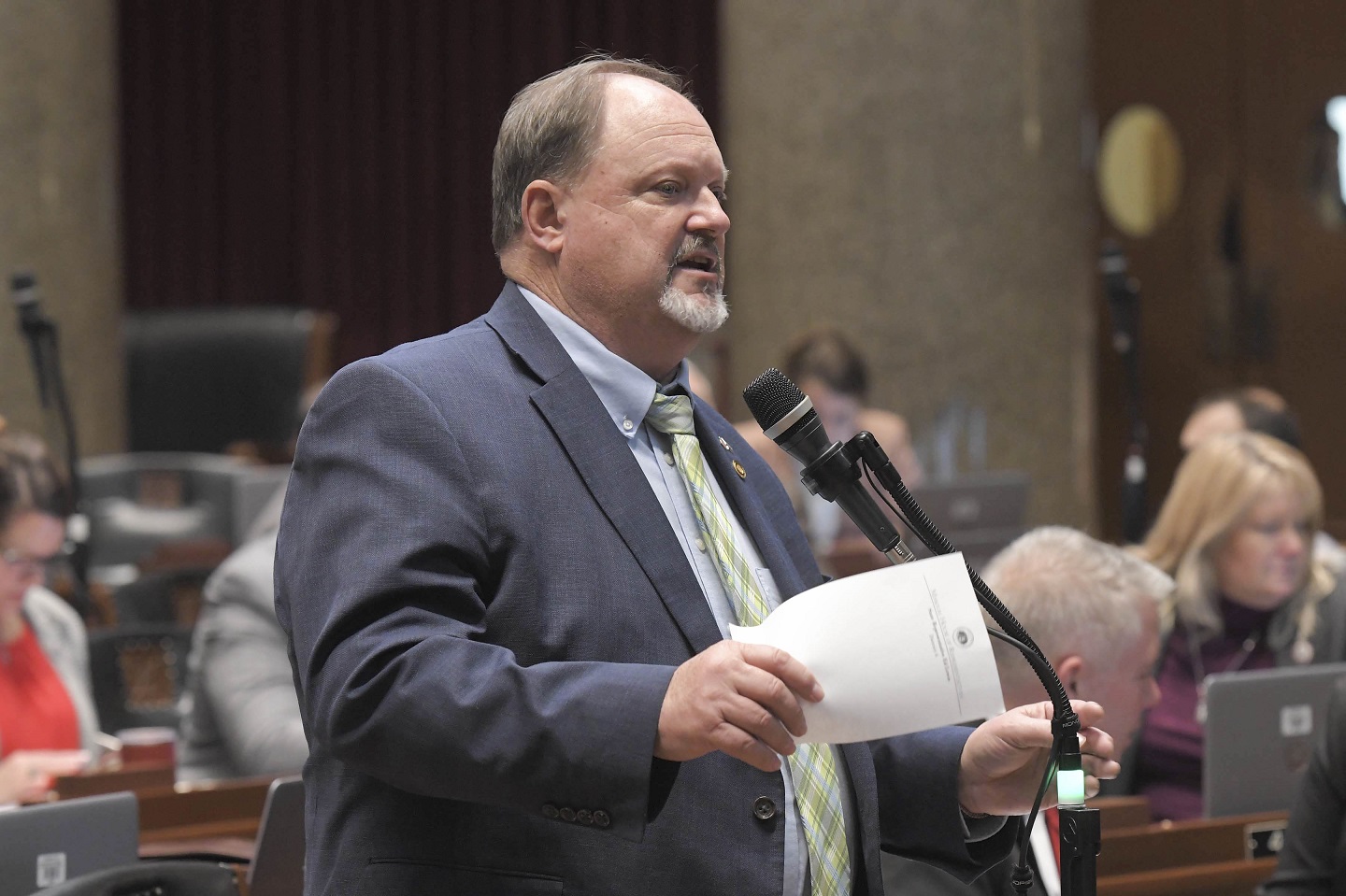
HBs 1706 & 1539 seeks to extend that effort by creating the “Statewide Council against Adult Trafficking and Commercial Sexual Exploitation of Children,” which will be very similar to the Statewide Council (for/on) Minor Sex Trafficking, except that it will fall under the authority of the Attorney General’s Office.
The legislation would increase from 15 to 17 the age a victim must be in order for an abuser to be charged with enticement of a child.
It would also would establish restitution to be paid by those guilty of trafficking and sex crimes as specified by the bill, in the amount of $10,000 in restitution per identified victim and $2,500 for each county in which an offense or offenses occurred.
That restitution would to go support local rehabilitation services for victims including mental health and substance abuse counseling; education; housing relief; parenting education; vocational training. It would also back local efforts to prevent trafficking, including education efforts and efforts to expand law enforcement efforts targeting trafficking.
HBs 1706 & 1539 passed out of the House 143-1 after several legislators expressed, passionately, how badly they want to see Missouri combat trafficking.
Rogersville Representative Darrin Chappell (R) said in his time as a city administrator in Chillicothe, Bolivar, and Seymour, this issue caused him more stress than any other.
“It was those children who I knew were suffering, but they lived just outside our jurisdiction. They would come to our schools, we would know what was going on in their homes, we saw the horror stories being played out in our lives, and because they were outside of our jurisdiction there was nothing we could do,” Chappell said. “I believe with all my heart we need to protect our citizens from this absolute travesty that we see in our society today, known as human trafficking, and I encourage everybody to support this bill with me today.”
While this legislation is on its way to the Senate, Myers is already thinking about his next effort.

